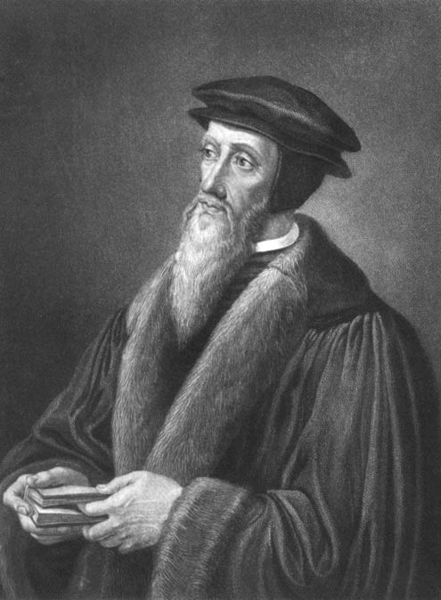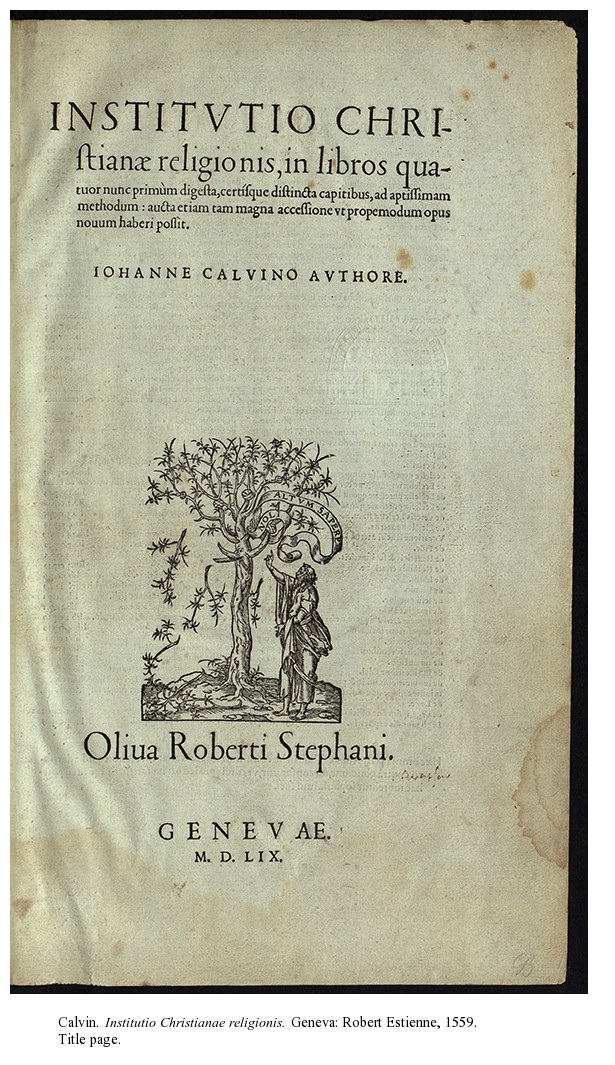은혜의 방도 | Means of Grace
금식은 기도를 돕기 위한 것
금식에 대해서 칼빈이 쓴 것(기독교강요, 제 4권, 12장, 14-21절)은 읽어볼 가치가 있습니다. 성경이 가르치는 은혜의 방도로 말씀, 예배, 찬송, 기도, 헌상, 성찬과 세례를 들 수 있지만, 금식은 그 자체로 은혜의 방도로 보지 아니합니다. 기도에 집중하기 위해 금식을 할 수도 있겠지요. 그러나 금식 자체가 무엇을 이루지 못합니다. 물론 그것은 기도도 마찬가지입니다. 기도를 한다는 것 자체가 우리의 무능을 인정하고 하나님의 권능의 손에 의지하는 것이고, 나를 부인하는 하는 것이잖습니까. 우리의 그 어떤 행위도 하나님께 인정 받을 근거가 되지 못하며, 우리의 의란 다 더럽습니다.
방언에 대한 개혁신앙적 입장
그런가하면 성경 시대의 방언은 계시적 도구였지만 오늘날의 방언은 계시적 도구가 전혀 아니라고 생각하시는 분들은 오늘 날에도 방언 현상이 있을 수 있는 여지가 있다고 봅니다. 이런 둘째 입장을 가지게 되면 성경에 나타난 방언과 오늘날 있는 방언은 같은 것이 아니라는 것을 주장하는 것이 됩니다. 따라서 이런 입장을 취할 때, 오늘날의 방언 현상과 성경적 방언을 같은 것으로 보고 하는 논의를 하거나 그런 생각을 해서는 안 됩니다. — “방언 문제에 대한 성경적 개혁 신학적 논의를 감사드리면서” 이승구 교수
Concerns on (Some) Modern Regulative Principle Proponents
Times recently ranked 3rd the “new Calvinism” as the “idea that is changing the world right now”1. I myself have been noticing this. This is quiet true in Korea; and I thank the Lord for his abundant blessings to the Christians in Korea, and raising up reformed churches there. It is worth while to note that one of the main object or reason for the Reformation was to bring back biblical worship.2 The Hebrew word “shachah” (translated “worship” in English) has a simple and clear meaning of “bowing down”; but since it is so easy for humans to understand it as a physical activity, our Lord taught us that we…
Calvin on Worship: The Necessity of Reforming The Church
Here are some schematic equations representing Calvin’s thought on worship, according to some people: “Old Testament Worship $ \overset{?}{=}$ Sacrificial Ceremonies in the Temple” and “Worship $ \overset{?}{=}$ Reading of Scripture + Prayer + Sacraments” but “Worship $\neq$ Reading of Scripture + Prayer + Sacraments + Dancing”. According to my reading of Calvin, however, he says that ‘None of the above is right.‘ His view on worship is carefully written in his letter The Necessity of Reforming the Church. And I shall quote Calvin from that letter throughout this post. In essence, what Calvin says there is that worship cannot be defined in terms of external forms; and that the…
참 지혜는 말씀의 계시에서 옴 (기독교강요 1.6절)
(1년 완독 계획표가 여기 있습니다.) 1.5 절에서 내린 결론에 의거하여 1.6절에서는 사람이 하나님에 대한 바른 깨달음을 얻으려면 하나님의 계시가 필수적임을 이야기합니다. 하나님의 계시는 구전 되었다가 기록되었는데 그것이 성경입니다. 모든 인간은 자기 방식의 종교를 고안하는 유혹에 빠지는데, 거기서 벗어나는 유일의 길이 하나님의 말씀에 귀를 기울이는 것입니다. 여호와의 율법은 완전하여 영혼을 소성시키며 여호와의 증거는 확실하여 우둔한 자를 지혜롭게 하며 여호와의 교훈은 정직하여 마음을 기쁘게 하고 여호와의 계명은 순결하여 눈을 밝게 하시도다 [시편 19:7–8] 하나님께서 초기에는 유대인들에게 그 말씀을 맡기셨습니다. 그러므로 구원자와 그에 대한 증거가 유대인에게서 나올 수 밖에 없었습니다. 하나님의 말씀이 없이는 우상 숭배에 빠지게 됨을 예수님께서도 말씀하셨습니다: 너희는 알지 못하는 것을 예배하고 우리는 아는 것을 예배하노니 이는 구원이 유대인에게서 남이라. (요한복음 4:22)
바른 신학은 오직 말씀의 계시에서 옴 (기독교강요 1.5.10–12)
본 소절들에서 칼빈은 하나님의 계시 없이 인간이 스스로 궁구하여 신을 탐구할 경우 여지 없이 거짓과 우상을 숭배하게 되는 사실을 이야기하고 있다.
Lessons from the Grain Offering
(Thoughts after reading Chapter 8 of “On Offering”, Vol 1, by H. C. Kim) In my child days, I remember seeing people bringing rice to church for offering. This is not so common where I am now; probably the most common material we see brought for offering would be money. Money is closely linked to our daily life; it represents potential for various things. In that sense the nature of the monetary form, which is common for offering in our day and age, is closest to the Grain Offering (Leviticus 2). Grains are used daily and it produces energy for our life, so it represents potential for various works. Another…



